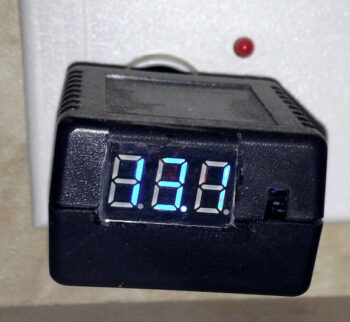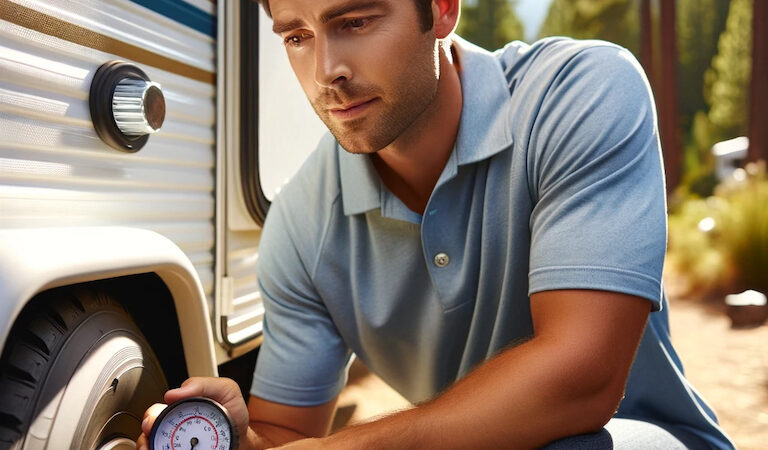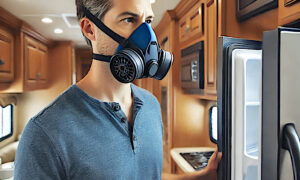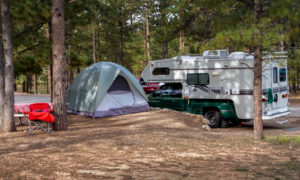
These ten RV maintenance tips will help extend your RV’s life and prevent major repairs. By taking the time to maintain your RV, you can avoid costly repairs and keep your vehicle in top condition. Properly caring for your RV is essential for ensuring safe and enjoyable adventures.
Lubricate RV Hinges and Locks
Keep hinges, locks, sliders, and other moving parts lubricated with a dry silicone lubricant. This helps prevent rust and makes parts move smoothly. Regular lubrication minimizes friction, ensuring that these components last longer and operate more quietly. Pay special attention to door hinges, window sliders, and slide-outs. Using the right type of lubricant is essential; dry silicone is recommended because it doesn’t attract dust and dirt.
Tighten Loose Screws and Bolts in Your RV
Tighten any loose screws, bolts, and fittings regularly. Vibration while driving can loosen parts over time, potentially leading to bigger issues. Check items like ladder rungs, which are essential for safety when accessing the roof, as well as furniture mounts, cabinet doors, and exterior attachments. This simple task can prevent accidents and costly repairs.
Clean Your RV Inside and Out
Keep your RV clean both inside and out. Wash and wax the exterior regularly, and use UV protectants to shield it from sun damage. Cleaning the mechanical systems, such as the engine compartment, can help it run more efficiently by removing dirt and grime that could cause overheating. Inside, maintain cleanliness to avoid pest infestations and ensure a pleasant living environment. Regular cleaning also allows you to spot potential problems early.
Monitor and Maintain RV Tires
Inflate your tires to the recommended PSI and inspect them for damage before every trip. Properly inflated tires improve fuel efficiency and handling. Check the condition of the tire tread and sidewalls for cracks or bulges, and ensure the lug nuts are correctly tightened. Use tire covers when your RV is parked for extended periods to limit sun exposure, which can cause cracking and deterioration. Regularly rotating the tires can also extend their lifespan.
Test Smoke, Propane, and CO Detectors in Your RV
Ensure smoke, propane, and carbon monoxide detectors are functioning correctly, and their batteries are charged. These detectors are critical for safety, alerting you to potential fire, gas leaks, or dangerous levels of carbon monoxide. Test them monthly and replace the batteries at least twice a year. If a detector is more than 10 years old, it’s time to replace it with a new one. Routinely testing these detectors is one of the most important ten RV maintenance tips to ensure your safety on the road.
Replace Light Bulbs in Your RV
Carry spare lightbulbs for all your light fixtures. Before each trip, check that all turn signals, running lights, and interior lights are working properly. Good lighting is crucial for visibility and safety, both on the road and at campsites. Consider upgrading to LED bulbs, which are more energy-efficient and last longer than traditional incandescent bulbs.
Inspect and Repair RV Seals
Regularly inspect the seals around windows, vents, and seams, especially on the roof, for any signs of cracks or damage. Water leaks can cause significant damage to your RV’s interior and structure. Use a quality sealant to fix any issues immediately. Maintaining a watertight seal helps prevent mold, mildew, and costly repairs down the line.
Check RV Battery and AC Voltage

Use a multimeter to monitor your RV’s battery and AC voltage. Your main batteries should read between 12.4 and 12.8 volts. AC voltage that falls below 108 volts or rises above 130 volts can damage your appliances and electrical systems. Consider investing in an electrical monitoring system to keep a close eye on voltage levels and protect your RV’s electronics from power surges or low voltage issues.
Inspect RV Undercarriage Regularly
Routinely check the undercarriage of your RV for loose, broken, or corroded parts. Look for issues with the suspension, axles, and brake lines, as well as the frame and hitch components. This proactive approach helps you find problems before they cause breakdowns. For example, I once had a cross brace on my fifth-wheel trailer frame fall off while driving. Luckily, I retrieved it and re-welded it, preventing a potential disaster.
Follow an RV Maintenance Schedule
Adhering to a maintenance schedule will help keep your RV in top shape for trouble-free trips. Regularly change the oil, replace filters, and check fluid levels. Schedule seasonal inspections for your HVAC system, plumbing, and electrical systems. Keeping a maintenance log can help you stay on top of these tasks and ensure nothing is overlooked.
By following these ten RV maintenance tips, you can extend the life of your RV and enjoy more trouble-free adventures on the road. Proper maintenance not only prevents major repairs but also ensures your safety and comfort while traveling.
You may also like these articles:
Summer RV Camping: Outdoor Cooking Tips
Propane Cylinder Safety Tips for RVers
RV Holding Tank & Sewer Hose Tips







